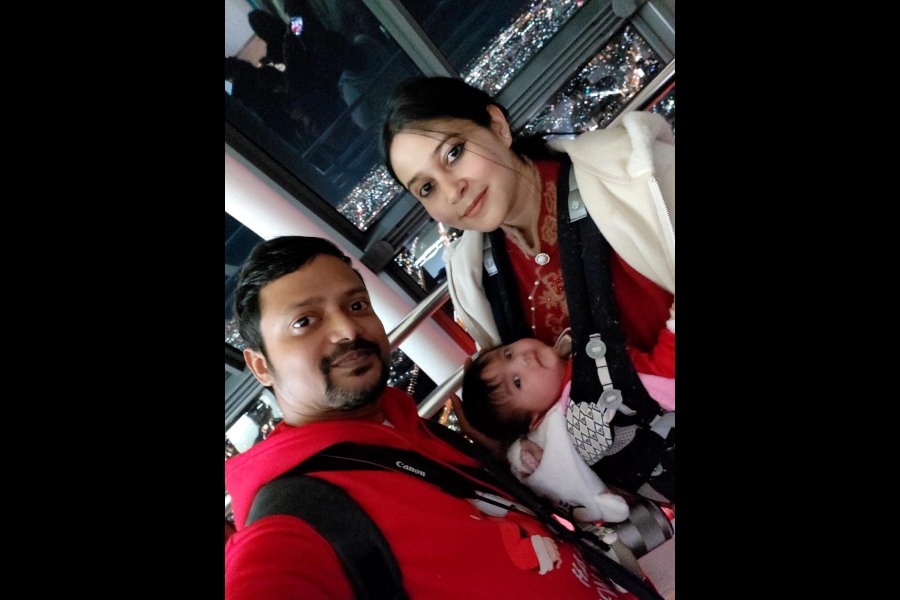Sudipta Das, an assistant professor of Visva-Bharati's Japanese department, experienced first-hand the devastating Japan earthquake on Monday.
Das, on a research assignment at the Tokyo University of Foreign Studies, along with his wife Sangita and four-month-old daughter Sanvika, on Monday went to visit Tokyo Skytree, the tallest observation tower in the world, two hours before the quake struck central Japan's west coastline, killing at least 55.
Das, who spoke to The Telegraph over the phone from his home in Japan, shared his experience of how they were trapped inside the Skytree for at least 10 hours after the earthquake struck.
"I shifted to Japan on a two-year-long research assignment at the Tokyo University of Foreign Studies under the Japan Society for the Promotion of Science (JSPS) scholarship in August 2022. I live in Fuchu City, adjacent to the university campus, and my daughter Sanvika was born here four months ago," he said.
"On Monday morning, we planned to visit the famous Tokyo Skytree to celebrate New Year. We reached there by 2pm," he said, adding that it already had thousands of visitors. "You can see the entire Tokyo from the Skytree, which is 634 metres tall."
Das said they started experiencing tremors around 4.30pm.
"Within a minute the security personnel and officials announced that all elevators would be stopped and no one could go out of the tower for our safety. I was taking photographs at a height of 455 metres in the tower when I heard the announcement," he said. "I imagined the worst."
"The tremors were felt not once or twice. The earth shook for at least 40 times over a six-hour span. People were shouting in panic and trying to hold on to whatever they could latch on to," Das said.
He confessed he and his wife were also panicky. "I can't describe it in words," he said. "We were stuck at a height of 455 metres from the ground and the earth was shaking."
Around 8pm, they came to know that it would take time to get down from the height as authorities would evacuate people one by one.
"Finally, when we stepped out of the tower and touched the ground, it was midnight and the date had changed," Das said. "I saw people speaking on the phone, taking news of their relatives and close ones, asking if they were safe."
They came to Tokyo City to take the train, but it took some time for the services to be restored.
"Finally, we could return home at 1.30am. After coming home I came to know about what happened to Japan and how thousands of people were displaced from their homes and deaths in places like Ishikawa, Toyama and Yamagata," Das said.
He called up a few of his colleagues and friends living in those areas. "Thankfully, they were safe."
The assistant professor said that though he and his loved ones were safe, he still couldn't get over the shock. "Yes, I did not lose my home, I have food and water, but I can't forget the feeling of almost witnessing death from close quarters," he said.











